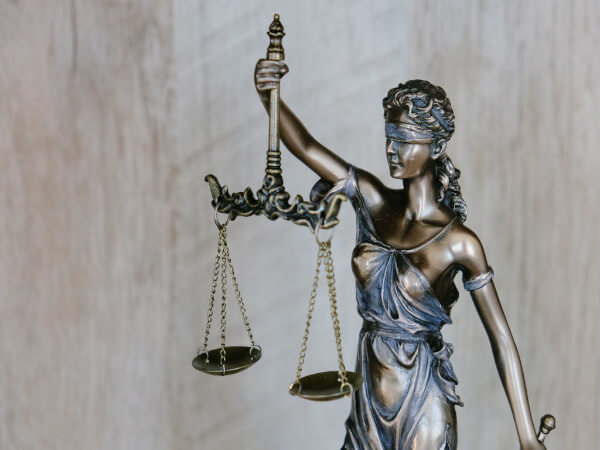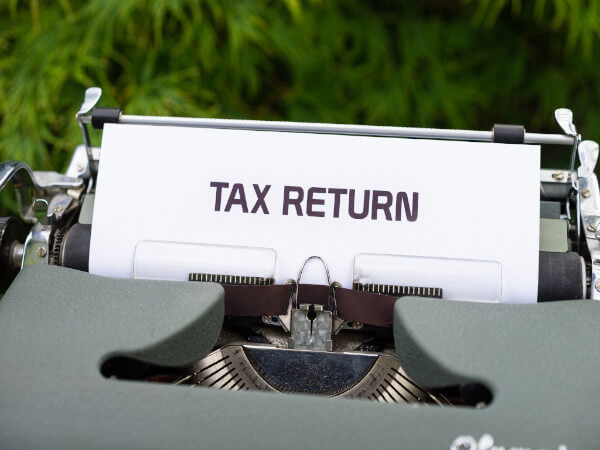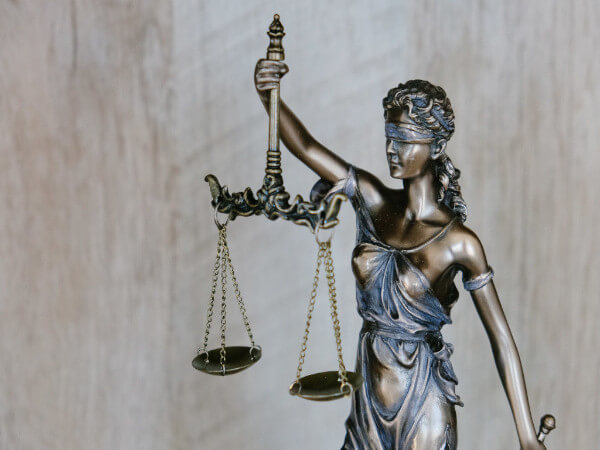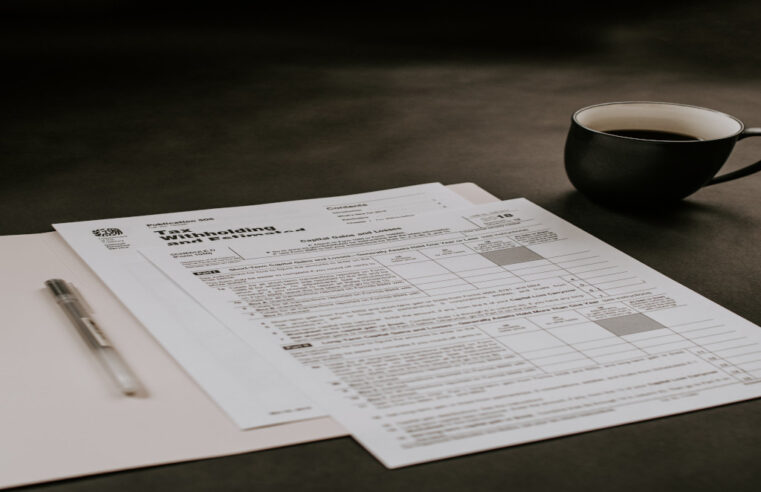J&K&L HC quashed defamation complaint filed against media-persons
The Jammu & Kashmir and Ladakh High Court, while hearing a defamation complaint filed against Editor-in-Chief of Republic TV Arnab Goswami and journalist Aditya Raj Kaul, made an observation that reporting of allegations levied against official duties of public figures does not amount to defamation. The complaint had been filed by Peoples Democratic Party’s (PDP) senior leader, Naeem Akhtar, in the year 2018 wherein it had been alleged that the Republic TV had broadcasted a news segment revolving around Khalid Jahangir’s letter which did not include complainant’s name yet the Editor-in-Chief had intentionally and deliberately mentioned his name while reporting about the same. The letter included allegations of corruption and favoritism, and the complainant alleged that the anchors and journalist of Republic TV repeatedly mentioned his name in connection to the allegations raised in the letter. The bench denied the allegations and stressed upon the duty of press to bring before the viewers’ news of day-to-day events relating to those public figures whose actions affect the public at large. Furthermore, the bench observed that in cases where journalist publishes true report in respect of a public figure and their public functions, which already remain in public domain, it could not be said to be an intentional act to harm the reputation of such public figure. The bench stated that publication of charges which concern public duties of a public figure and have already been recorded in a letter which is also in public domain, would amount to an unreasonable restriction on the freedom of press guaranteed under Article 19(1)(a) of the Constitution of India. It also highlighted that mens rea, a condition precedent to constitute the offence of defamation, had been absent in order to prove the intention or knowledge on part of accused to harm the reputation of complainant.
Read MoreMadras HC directs govt to take up the responsibility of vaccinating mentally ill persons
The Madras High Court, while hearing a Public Interest Litigation (PIL) filed by an NGO, sought for details from government about the vaccination drive being organized for the homeless mentally ill people and also directed the State government to renovate, restore and construct government care camps for such wandering mentally ill persons. The NGO, through the PIL, sought for directions to State Government for the purpose of identifying and vaccinating homeless mentally ill persons. In response to the PIL, the State Government had submitted a status report wherein it mentioned the number of mentally ill persons who had been rescued, identified and rehabilitated at care homes of the government. The government further emphasized on the possibility of such persons being vaccinated. The NGO gave the example of a government care camp which had been constructed at Melpakkam, in accordance to the provisions of the Tamil Nadu Beggary Prevention Act XIII of 1945, with an objective to eliminate beggary and rehabilitate the beggars. However, the NGO submitted that the care home has now been dilapidated. With respect to this finding, the bench directed the State Government to take every possible step to renovate and restore the already constructed homes and invest in new construction projects to rehabilitate the wandering mentally ill persons. The bench further directed the State government to submit a report with respect to total number of mentally persons who’ve not been cared for in the state and ones who’ve been vaccinated. The post Madras HC directs govt to take up the responsibility of vaccinating mentally ill persons appeared first on LexForti Legal News & Journal. Did you miss our previous article… https://www.itcse.org/?p=184
Read MoreLawyers With ADD: A Problem or an Advantage?
Lawyers with ADD/ADHD may struggle with organization, sustained focus, procrastination and deadlines. Tactics for dealing with common challenges. In my work as a psychologist, most lawyers and law students who talk to me about their attention deficit disorder, or attention deficit hyperactivity disorder, are typically under a fair amount of stress due to their symptoms. Most people see ADD/ADHD as an obstacle to overcome. Those with ADD/ADHD often struggle with organization, sustained focus, procrastination and completing tasks on time. For lawyers, there can be real consequences for missing important legal details, letting a statute of limitations run out or missing a court date. So, viewing ADD/ADHD as an advantage is not how most lawyers usually experience it. Then again, there are many with ADD/ADHD who do see it as an advantage. In fact, some experience the flip side of inattention, namely, the ability to hyper-focus on something that grabs their attention. This can be a great strength if that hyper-focus in directed at important work-related tasks. Whether you are struggling with managing ADD/ADHD symptoms or wearing them as a badge of honor, here are helpful strategies to keep in mind. Strengths and Weaknesses First, it’s important to recognize that every human ability is either a strength or a weakness depending on the demands of the situation. The same ability can be a strength in one situation and a weakness in another. So stop viewing a given ability, or lack thereof, as either an absolute advantage or disadvantage. Is it essential to be tall to play in the NBA? Muggsy Bogues was 5-foot-3 and played there for 14 seasons. The key is to be aware of which situations and tasks are best matched with your abilities. Then, when your professional (or personal) life includes situations or demands that are mismatched with
Read MoreSC upheld NCDRC order on non-maintainability of complaint against power distributor
The Apex Court, while upholding the finding of National Consumer Dispute Redressal Commission, held that a consumer complaint against power distributor is not maintainable for raising an additional bill in case of short-assessment. In the instant case, the consumer earlier approached NCDRC against the demand of power distributor on ground of “deficiency of service.” However, the NCDRC dismissed the complaint on account that there had been no deficiency of service on part of power company and an additional bill had been raised for the purpose of recovery of “escaped assessment.” Aggrieved by the order of NCDRC, the consumer preferred an appeal against the NCDRC’s order. The division bench of the apex court agreed to the finding of NCDRC and observed that there had been no deficiency of service as defined under the Consumer Protection Act, 2019. The Supreme Court bench, while explaining that the raising of additional bill would not amount of deficiency of service, stated that it had been wrongly contended that the multiply factor had not been correct. It further explained that in case licensee discovers in the course of audit that a consumer had been short-billed, then the licensee is authorized to raise a demand. As long as consumer does not dispute the correctness of claim made by the licensee, or short assessment, the former cannot be said to be entitled to claim any deficiency. The bench concluded the order by upholding the impugned order passed by NCDRC and held that it correctly pointed that the case was of “escaped assessment” and not “deficiency of service.” Therefore, it held that the dismissal of complaint had been in order. The post SC upheld NCDRC order on non-maintainability of complaint against power distributor appeared first on LexForti Legal News & Journal. Did you miss our previous article… https://www.itcse.org/?p=175
Read MoreThought Leadership Marketing: Write for Someone, Not Everyone
With so much change and so many unanswered questions, there’s never been a better time to stand out through your thought leadership. Writing and publishing content often feels like tossing a needle into the internet haystack. That’s challenging enough. But if all you’re doing is recycling the same old ideas, and trying to make them relevant to the biggest audience possible, then it’s not even a needle. It’s just more hay. The way to stand out is to create content that is more client-focused — that is, content created for a very specific, often small, audience. You don’t need to reach everyone, just the cohort of individuals and businesses that requires the type of contextualized insight only you can offer. By showing up over and over for your audience, you’ll generate awareness, and people will come to trust you. Awareness and trust are the building blocks of business development. From the client’s perspective, deciding who the right lawyer is for the job will become obvious. After all, why would a client choose an unknown commodity when there’s someone consistently showing up in their inbox and social feeds with solutions to the very problems they face? Lawyer Thought Leadership: Narrow Your Focus When you set out to become a thought leader, you need to approach it with the mindset that you must write for someone, not everyone. You must narrow your focus. Businesses and individuals succeed when they focus on less, not more. Across all categories of service offerings, there are continuums of premium brands and commodity ones. Those in the premium category narrow their positioning — the articulation of what they do and for whom they do it — to the point that there are few, if any, available alternatives to what they offer. They solve discrete problems for distinct
Read More17 Amazing Ways a Hobonichi Techo 2022 Will Change Your Life
Hobonichi Techo planners have stolen my heart. As a verified card-carrying analog weirdo, my relationship with paper is multivalent and perhaps ever so slightly unhealthy. I nerd out over really great sticky notes. I write thank-you cards like it’s 1845. I go through pencils the way other people go through something they go through. Yet, though I gush over Leuchtturm 1917 pads and Moleskines and (oh, baby) Baron Fig notebooks, my daily planner is a crappy yellow legal pad and has been for a long damn time. Or it was. I Will Spend 2022 Using a Hobonchi Techo Planner There’s no good reason for this. I mean, there are a lot of good reasons for me not to do this. I tend to work in weeks, not days. My job is not terrifically demanding. I don’t have a long to-do list. It’s more of a to-do spectrum. Dated pages are not my style. I’m writing this article on a Monday morning and the to-do list I’m working from was laid down in tragically illegible script on my crappy legal pad last Thursday. I’ve only finished one item on that list. An organized planner like the Hobonichi Techo might be a huge waste of paper. But I Can’t Help It: The Hobonichi Techo Is So Good Everything about this planner is something that works. It’s like they get me: I love ultra-luxurious practicality. And so, below, please find my deep dive into the Hobonichi Techo 2022 planner. I cover every qualitative aspect that makes this planner great. Just look at how beautiful it is! The Paper: Tomoe River Paper Is the Gold Standard for Notebooks Notebook nerds all over the planet go crazy for Tomoe River paper. So do fountain pen freaks. Tomoe River papers are considered world-class because they are luxurious,
Read MoreRight of underprivileged children to receive online education covered u/Art 21A- SC
The Apex Court, with respect to the Right to Education, made an observation that the underprivileged students’ need of receiving online education ought to be protected in order to ensure that the “Right to Education”, which is protected under Article 21A, soon becomes a reality. The instant petition had been filed by Action Committee Unaided Recognized Private Schools against the judgment passed by Delhi High Court, wherein it directed the school management to provide free gadget and internet connection to students belonging to Economically Weaker Sections and Disadvantaged Groups, and Delhi Government to reimburse the costs to private schools. The bench issued a notice and directed the Delhi Government to come up with plans and ideas to achieve the ultimate objective of Right to Education Act. It further added that even the Government of India should take steps and engage State Governments as well to carry out its concurrent responsibility of providing funds under the Act. The bench in its order noted that the students belonging to EWSs and DGs should have the necessary wherewithal to ensure that they’re at the same platform like other schools across the country who had been able to continue their education through online mode. Earlier, the Delhi HC had directed the Delhi Government to reimburse the private schools, however, the latter challenged the order before Supreme Court and the Delhi HC’s order had been stayed. The instant Special Leave Petition (SLP) has thus been preferred by the applicant. It also had been noted by the bench the aforesaid issue needs to be resolved as early as possible as there would be reopening of schools. Until then, computer-based learning would prevail and the accessibility of the same to the students belonging to EWSs and DGs of utmost importance. Lastly, the bench clarified that the instant
Read MoreDon’t Say This to a Survivor
Whether counseling your client or in your opening statement, to call these people “lucky” shows a lack of empathy and risks insulting them. “You’re lucky the collision wasn’t worse.” “He was lucky the cops got there so fast.” “You’re lucky you were able to get out of the house before your husband could hurt you again.” Tone-deaf As attorneys, we often meet people who have suffered calamities. There is nothing lucky about needing major surgery. The business chief who uncovers intellectual property theft is not lucky. Whether counseling your client or addressing someone in your mediation opening statement, to call these people “lucky” risks insulting them. Yet, we misuse this phrase regularly. We tell the victim of a random criminal beating how lucky he is to only have his facial bones broken and bruised eyes swollen shut. We use the demeaning phrase “at least.” At least you weren’t killed. At least you didn’t lose your vision. As soon as you tell someone they should be thankful they aren’t worse off than they are, you have alienated that person. Empathy Neither is misfortune a contest. “Well, when I had my accident, the doctors said I would recover in a couple of weeks.” “Somebody else I know suffered this same trauma, and the injuries were much worse.” Any statement trivializing another’s suffering is a misstep. In evaluating cases, lawyers sometimes make the mistake of assuming everyone will have the same response to similar events. Because one person is able to carry on after a disaster doesn’t mean everyone has the physical stamina, mental strength, and family and work support system to do that. Some people suffer depression or a version of PTSD, post-traumatic stress disorder, all while appearing able to cope. Others become helpless to carry on their daily activities even in
Read MoreTake Advantage of Adobe Sign for Collecting Digital Signatures
Whether you’re just now jumping on the digital signature wagon or you’re looking to consolidate your subscriptions, Adobe Sign may be the answer. Adobe Sign is included with all Adobe Acrobat Pro DC subscriptions, saving you money and reducing the number of products you need to get the job done. Learn more tips like this in Affinity Consulting Group’s “Adobe Acrobat for Legal Professionals.” What Adobe Sign Does Adobe Sign lets you digitally sign documents and collect digital signatures from others — most often your clients. You can track whether documents are signed and send reminders to people who haven’t yet signed them. Documents can be signed from any device with an internet connection. Depending on your license type, you can have up to 25 signers, 100 pages and 10 MB per transaction. Most licenses include 150 transactions per year. Business and enterprise-license customers can purchase more transactions per year. Read more about the transaction limits here. Requesting Digital Signatures You can request signatures either from the Acrobat desktop interface or https://documentcloud.adobe.com. Either way, once you get into the Adobe Sign interface, they both work the same way. From the desktop interface: Open the PDF to be digitally signed.Open the Fill & Sign tool. You can open it from the Tools window, or you can open it from the File or E-Sign menus by clicking on Request Signatures. If you open Fill & Sign from the Tools window, you’ll need to click on Request Signatures in the tool. From the web interface: Under Sign, click on Request Digital Signatures. Once the Adobe Sign dialog is open: Enter the email addresses of everyone who will digitally sign the document. Everyone added here will receive an email with a link to digitally sign the document.Check the subject line. The email’s subject line
Read MoreShadow IT: A Serious Threat to Law Firms
What Is Shadow IT? The first problem with cautioning lawyers about the dangers of “shadow IT” is that most of them have no earthly idea what it is. So let’s start there. Leading research company Gartner defines shadow IT as IT devices, software and services (including cloud services) outside the ownership or control of the IT department of a business. Once lawyers understand the definition, they generally say that everything is within the control of their IT department. Most of the time, that answer would be wrong, though many don’t know it. Just the Facts, Please Studies by Gartner have revealed that shadow IT constitutes an amazing 30% to 40% of IT spending in big enterprises. Advisory firm CEB estimates that the percentage is 40%. Everest Group research states that it makes up 50% or more of the spending. No need to split hairs — all three numbers are big. Small law firms are not immune to this trend. How many law firm services are in the cloud, especially today? And are they all under the control and direction of the IT department? The likely answer is no. re They All Renegades? Absolutely not. In fact, shadow IT is sometimes implicitly permitted or even encouraged. Many would argue that shadow IT makes businesses more competitive and allows for enhanced collaboration and innovation. In their view, users discover applications or services that allow them to do their jobs better or more easily, and IT can subsequently go in and secure the applications or services. In our experience, this is not a useful way to approach risky behavior by employees, the consequences of which can be dire. Why do employees go outside the firm’s IT folks? Sometimes, an IT department moves slower than the average tortoise or routinely raises objections to what
Read More














